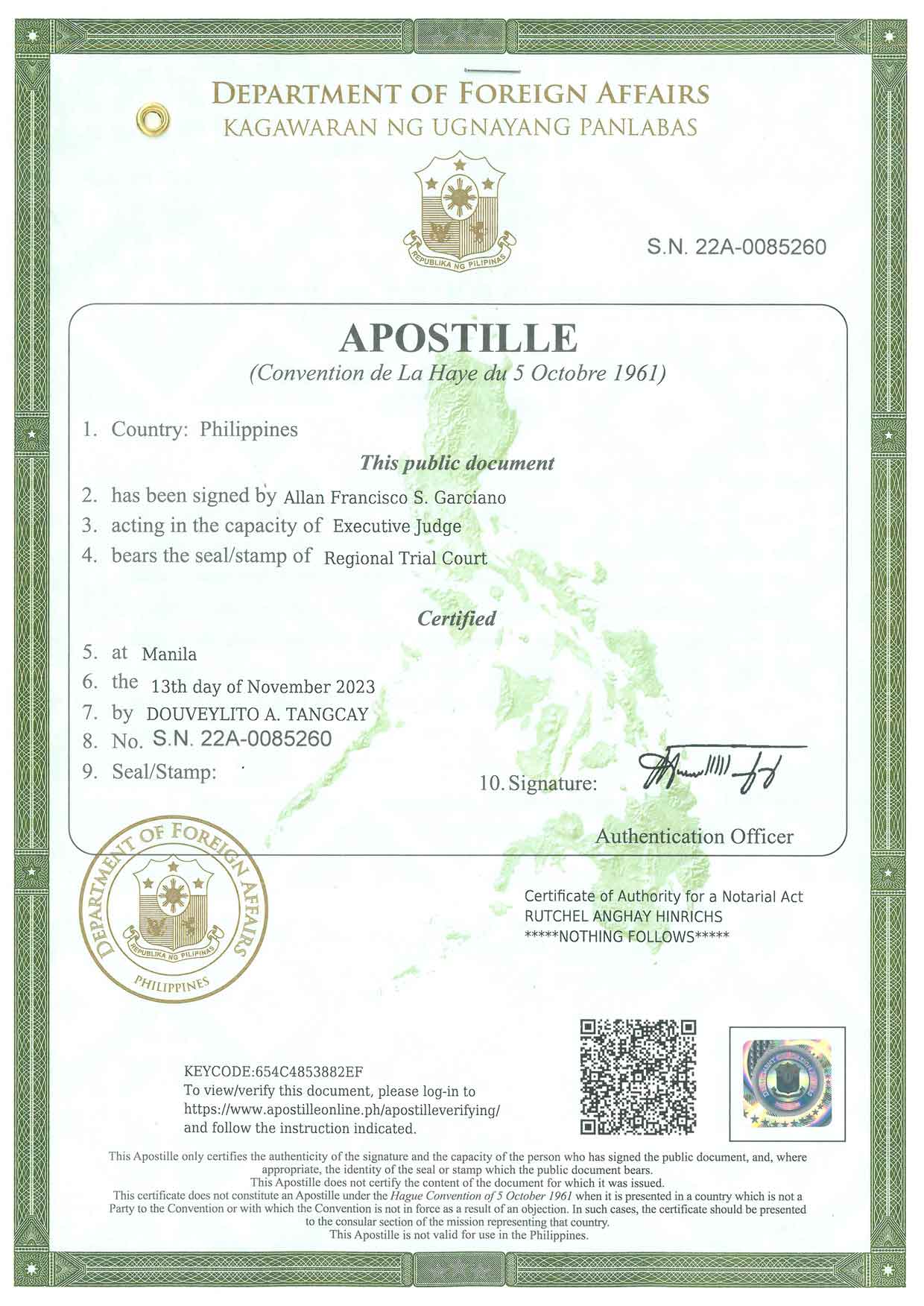Convenient Houston Texas Apostille Services-- Quick Turnaround Times
Convenient Houston Texas Apostille Services-- Quick Turnaround Times
Blog Article
Comprehending the Apostille Refine: A Comprehensive Guide to International File Verification
Navigating the detailed landscape of international file verification can be discouraging without a clear understanding of the apostille process. This overview diligently outlines the required steps, from recognizing which records call for accreditation to sending them for confirmation by the Competent Authority. Realizing the significance of an apostille and acknowledging prospective risks, such as insufficient entries and language barriers, can considerably enhance the verification trip. What exactly defines an apostille, and why is it so critical for files destined for Hague Convention nations? These inquiries develop the foundation of our expedition into this vital legal treatment.
What Is an Apostille?
An apostille is a main certification that confirms the credibility of a paper for use in an additional country. This qualification, issued by a marked authority in the country where the file stemmed, makes certain that the paper is recognized as legitimate and legit in the worldwide arena. The process of acquiring an apostille includes several steps, including the verification of the document's trademarks, seals, and stamps by ideal governmental bodies.
The apostille functions as an internationally recognized form of verification, made possible by the Hague Convention of 1961. This treaty, officially referred to as the Hague Convention Eliminating the Need of Legalisation for Foreign Public Files, standardizes the process of document certification amongst member nations. The apostille itself is a standardized certification that has specific info, such as the issuing authority, the native land, and the day of issuance.
It is very important to note that not all records are eligible for an apostille. Usually, public documents like copyright, marriage licenses, court orders, and academic diplomas certify for this accreditation. Exclusive files, such as agreements and contracts, might require registration and additional steps to certify.
Significance of Apostille
Understanding what an apostille is establishes the phase for appreciating its relevance in international negotiations. houston tx apostille. An apostille, essentially a kind of certification provided by a marked authority, validates the authenticity of a record for use in international countries that are notaries to the Hague Apostille Convention. This standard procedure eliminates the demand for further legalization by consular offices or consular offices, thus simplifying worldwide deals
It ensures the credibility and acceptance of necessary documents-- such as copyright, marriage licenses, and academic diplomas-- throughout boundaries. For companies, it promotes the smooth conduct of worldwide trade, mergings, and acquisitions by offering a trusted approach of record confirmation.
Furthermore, an apostille boosts lawful safety and security and conformity. Governments and institutions can with confidence depend on the credibility of papers bearing an apostille, alleviating the risk of scams and misrepresentation.
Papers That Require Apostille
When participating in international deals or lawful issues, particular files often require the verification provided by an apostille. This ensures their acknowledgment and approval in nations that are notaries to the Hague Apostille Convention. Typically, personal files such as birth certifications, marital relationship certifications, and fatality certifications require an apostille, particularly when they are utilized for procedures like immigration, marriage abroad, or worldwide probate issues.
Educational records are an additional category regularly calling for apostilles. Diplomas, transcripts, and academic records commonly need this authentication for functions such as seeking more education and learning, work, or specialist licensing in a foreign nation (houston tx apostille). This action ensures that the records are identified as reputable and legitimate
Lawful records, consisting of powers of lawyer, testimonies, and court orders, also typically require apostilles. Service papers such as certifications of consolidation, bylaws, and industrial agreements might call for an apostille to promote global profession, establish foreign branches, or take part in cross-border legal proceedings.
Actions to Get an Apostille

Obtaining an apostille involves a multi-step procedure that makes certain Get More Information the authenticity and approval of your files in foreign countries. The initial step is determining which papers need an apostille. houston tx apostille. Common documents consist of birth certifications, marriage licenses, academic transcripts, and company records
When identified, the file should be licensed by the proper issuing authority. After certification, the record needs to be submitted to the marked Competent Authority in the file's country of origin.
The submission procedure generally requires a finished application type, the initial paper, and a cost. Some territories might provide the alternative of expedited processing for an added fee. Upon successful verification, the Competent Authority will attach the apostille certification to the file, consequently validating its authenticity.
Usual Challenges and Solutions
Navigating the apostille click this site procedure can provide a number of typical obstacles that, if not effectively dealt with, might postpone or make complex document verification. Each nation has specific needs for the types of documents that can be apostilled, and any type of deviation from these can result in being rejected.
Another common challenge is comprehending the diverse handling times. Handling times can differ substantially in between find nations and also between different regions within the same nation. It is important to represent these variations when preparing the apostille process to stay clear of unexpected hold-ups.
Additionally, language barriers can pose substantial barriers. Papers in a foreign language typically call for licensed translations, and any type of errors in translation can cause additional problems. Involving an expert translation service can reduce this risk.

Conclusion
Mastering the apostille procedure considerably enhances the efficiency of international file authentication. By understanding the need of recognizing and licensing required papers, and navigating the submission to the Competent Authority, the process becomes extra convenient.
Report this page